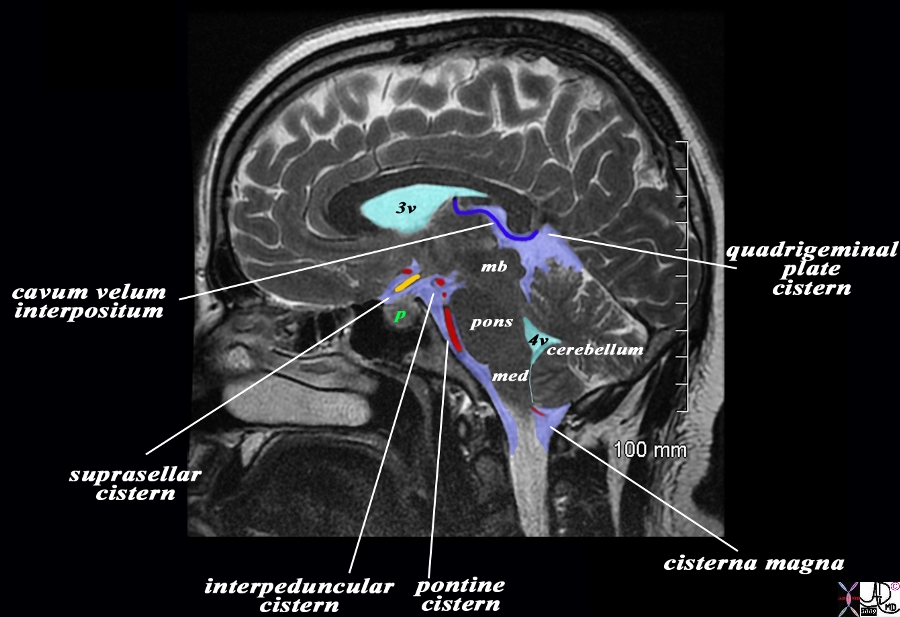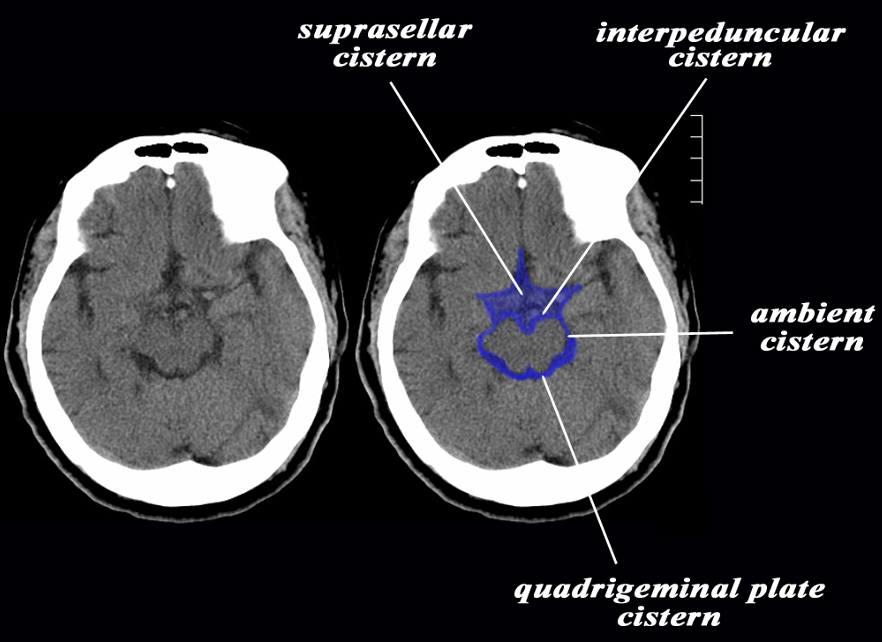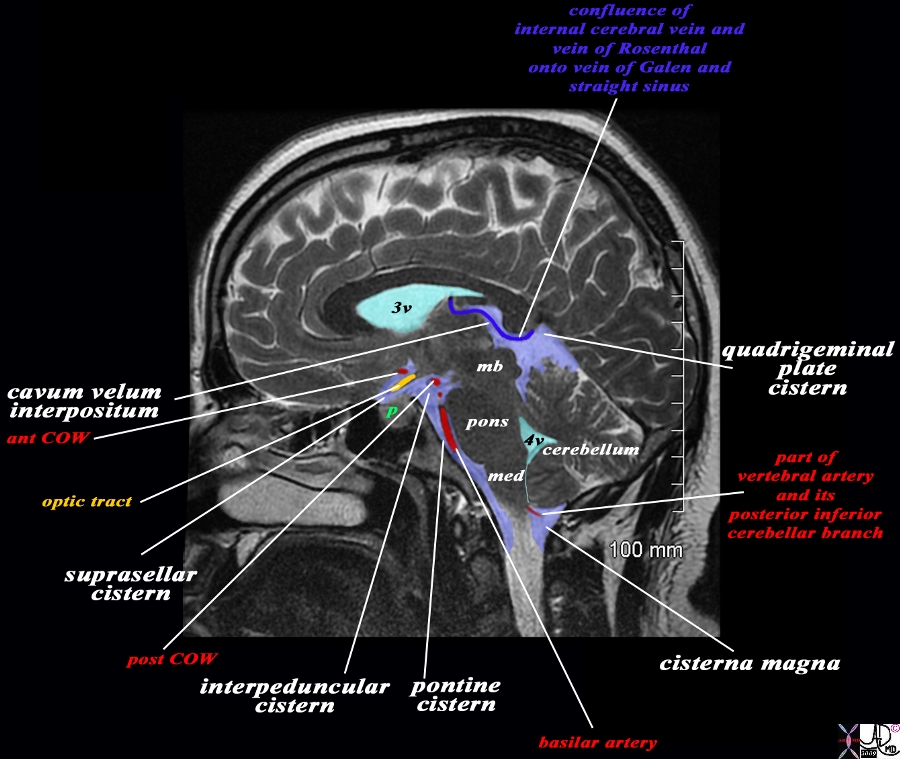The Common Vein Copyright 2010
Definition
The quadrigeminal plate cistern is an expanded subarcahnoid space posterior to the midbrain, and specifically in the region of the quadrigeminal plate. It is bounded superiorly by the splenium of the corpus callosum and inferiorly by the the velum. Posteriorly it is bound by the tentorium and falx.
Its vascular relationships include ythe confluence of the internal cerebral vein, vein of Galen and the straight sinus.
|
Basal Cisterns in Sagittal Section |
|
The overlay outlines the basal cisterns in light blue, and the ventricles (teal blue), and a variety of cerebral structures including the midbrain (mb) pons, medulla (med) and cerebellum. A variety of blood vessels (overlaid in blue and red are related to the basal cisterns. The image is T2 weighted sagittal MRI sequence from a patient with a macroadenoma of the pituitary (green p). Starting inferior and anterior we follow the pontine or prepontine cistern associated with the basilar artery, the interpeduncular cistern which is an anterior to the peduncles of the midbrain, the suprasellar cistern (above the pituitary – green p), and the cavum interpositum. Posteriorly the quadrigeminal plate cistern lies behind the colliculi and finally the cisterna magna which surrounds the inferior aspect of the medulla and cerebellum and merges with the subarachnoid space around the cord. The peripheral dural sinuses include the superior sagittal sinus, the laterally placed junction of the transverse sinus and straight sinus, and the confluens of the inferior sagittal sinus which runs on the inferior surface of the falx and the straight sinus which lies on the posterior and superior surface of the tentorium overlying the cerebellum. Image Courtesy Ashley Davidoff MD Copyright 2010 All rights reserved 98287b03L02b.9s |
|
Quadrigeminal Plate Cistern and other Basal Cisterns Surrounding the Midbrain |
|
The axial CTscan through the midbrain shows the suprasellar cistern with a stellate shape anteriorly and enclosing vessels of the circle of Willis. Posteriorly the suprasellar cistern fuses with the interpeduncular cistern anteriorly, the ambient cisterns laterally, and quadrigeminal plate cisterns posteriorly. Image Courtesy Ashley Davidoff MD Copyright 2010 All rights reserved 94013b.9s |
|
Vessels Associated with the Cisterns |
|
The overlay outlines the basal cisterns in light blue, and the ventricles (teal blue), and a variety of cerebral structures including the midbrain (mb) pons, medulla (med) and cerebellum. A variety of blood vessels (overlaid in blue and red are related to the basal cisterns. The image is T2 weighted sagittal MRI sequence from a patient with a macroadenoma of the pituitary (green p). Starting inferior and anterior we follow the pontine or prepontine cistern associated with the basilar artery, the interpeduncular cistern which is anterior to the peduncles of the midbrain. The suprasellar cistern (above the pituitary – green “p”) is associated with the posterior aspect of the circle of Willis The cavum velum interpositum is associated with the optic tract (yellow) and the anterior vessels of the circle of Willis. Posteriorly the quadrigeminal plate cistern lies behind the colliculi lies anterior to the tentorium where the internal cerebral vein and vein of Rosenthal enter the vein of Galen (blue vein) to enter the straight sinus. Finally the cisterna magna which surrounds the inferior aspect of the medulla and cerebellum merges with the subarachnoid space around the cord where the vertebral artery and posterior inferior cerebellar artery run. Image Courtesy Ashley Davidoff MD Copyright 2010 All rights reserved 98287b03L03.9s |
References
Ryan S McNicholas M, and Eustace S. Anatomy for Diagnostic Imaging Second Edition Elsevier Health Sciences



